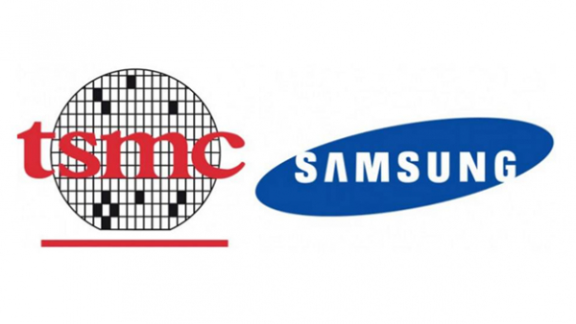Samsung Electronics and TSMC Planning on More Investments

TSMC and Samsung Electronics are increasing their investments in response to global market uncertainties.
Both TSMC and Samsung Electronics are increasing their investments to deal with global market uncertainties. Their move is based on a conclusion that the rapid growth of the cloud computing market after the outbreak of COVID-19 and U.S. restrictions on Huawei can be opportunities.
TSMC recently announced that its capital expenditures for this year would reach US$17 billion, increasing its own estimate by US$1 billion in several months. The company has increased its investment in EUV exposure equipment since last year. Under the circumstances, its capital expenditures increased from US$10.5 billion to US$14.9 billion last year.
The company’s sales and net profit amounted to 310.7 billion Taiwanese dollars and 120.8 billion Taiwanese dollars in the second half of this year, up 29 percent and up 81 percent from a year ago. This is why market experts are seeing the pandemic and U.S.-China trade disputes as TSMC’s opportunities. In the second half, its high-performance computing sales increased 12 percent from the previous quarter to account for one-third of its total sales.
Samsung Electronics, in the meantime, is trying to narrow its gap with TSMC. To that end, Samsung Electronics purchased a large quantity of EUV equipment from ASML, the sole supplier in the industry, in the second half and increased its investment in the semiconductor industry by 66 percent to six trillion won in the first half. The aggressive investment is likely to continue for a while.According to experts, Huawei is likely to share its application processor manufacturing technology with Unisoc, a subsidiary of Tsinghua Unigroup, and this can be an opportunity for Samsung Electronics in that Unisoc can manufacture high-end application processors with the foundry business unit of Samsung Electronics instead of TSMC kept in check by the United States. The increasing demand for cloud computing after the outbreak of COVID-19 can be another chance for Samsung Electronics, which is concentrating on ultra-microfabrication.
The difference between the two companies’ market shares is still large though. According to market research firm TrendForce, TSMC accounted for 51.5 percent of the global foundry market and that of Samsung Electronics, the runner-up, stood at 18.8 percent in the second half of this year.